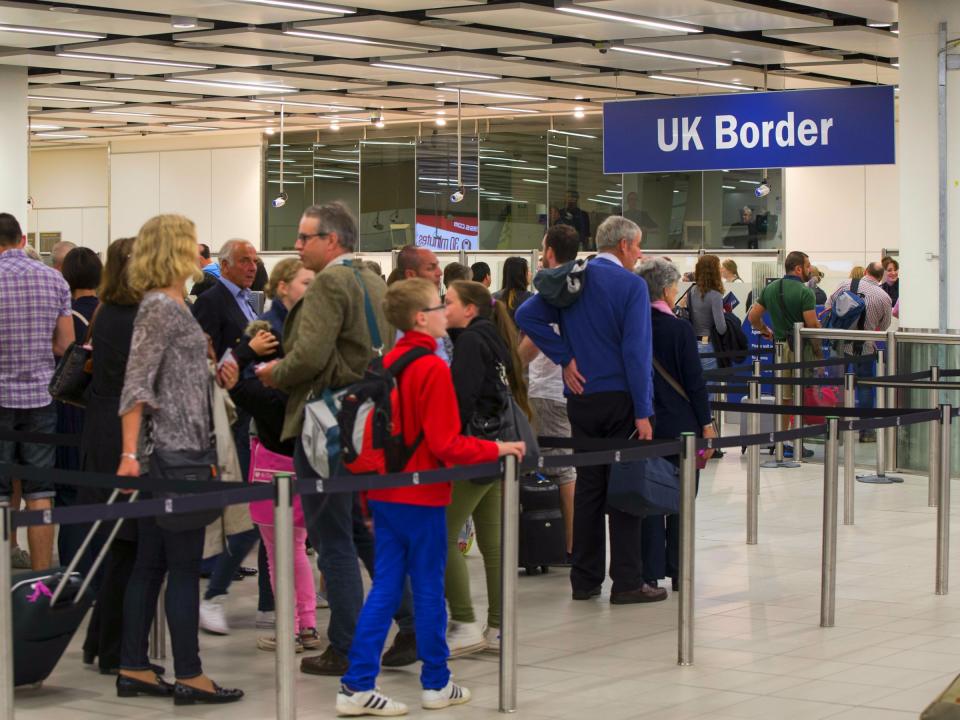UK net migration remained close to record levels in the lead up to Brexit

Oli Scarff/Getty Images
Net migration to the UK dipped but was still close to record levels in the months leading up the EU referendum, according to new estimates published by the Office for National Statistics.
Total net migration — the difference between the number of people who arrived in the UK and the number of people who left — was +327,000 in the year ending March 2016. This was down 9,000 from the previous year.
However, the ONS says this decrease was not statistically significant, as the overall number remained very close to the +333,000 which came to the UK in the year previous — the second-highest level since records began.
The ONS estimates that 633,000 people migrated to the UK, while 306,000 left.
The +327,000 net total included +180,000 EU citizens, a sign that many Europeans were anxious to successfully reach the UK in case a post-Brexit UK government employed tighter border controls.
"Today's EU net migration figures of 180,000 are to be expected and is evidence of the growing fear among EU citizens, leading up to the EU referendum, that the UK door could close on them soon - a fear that still remains," Jonathan Beech, Managing Director of Migrate UK told Business Insider in an email.
"Such concern is being felt by organisations as well as individuals," Beech added.
"During the same period as today's ONS migration figures — January '16 to March '16 — our firm saw a three-fold increase in EU citizens and UK organisations seeking Permanent Residency and British Nationality status for themselves and their staff as the UK headed towards an EU vote."
These new estimates will likely put even more pressure on Theresa May's government to negotiate a Brexit deal which will see a significant reduction in the number of people coming to the UK.
One of the major reasons Leave voters cited for backing a Brexit was the EU's freedom of movement policy — the right of EU citizens to live and work in other member states in the 28-nation bloc. Ipsos MORI found that immigration was the most important issue for Brits a week before the June 23 referendum.
The ONS' research also found that Poland is now the most common foreign country of birth for people living in the UK, leapfrogging India for the first time since migration figures were first recorded.
It is important to note that these figures cover the period ending March, and do not account for the weeks following the result of the EU referendum.
NOW WATCH: Theresa May: 'Brexit means Brexit'
See Also:
Key Brexit ministers are holding peace talks after weeks of falling out with each other
We spoke to the woman whose landmark legal case could block Britain from triggering Article 50
SEE ALSO: Owen Smith says he would block Article 50 if he became Labour leader
DON'T MISS: Key Brexit ministers are holding peace talks after weeks of falling out with each other

 Yahoo Finance
Yahoo Finance 
